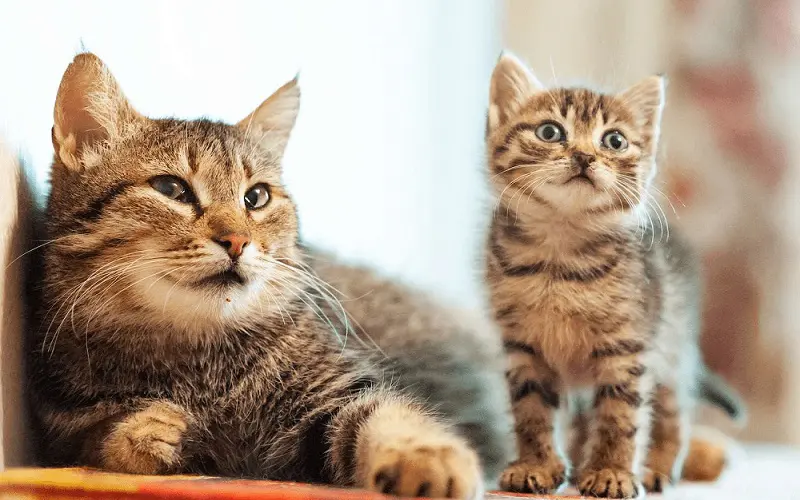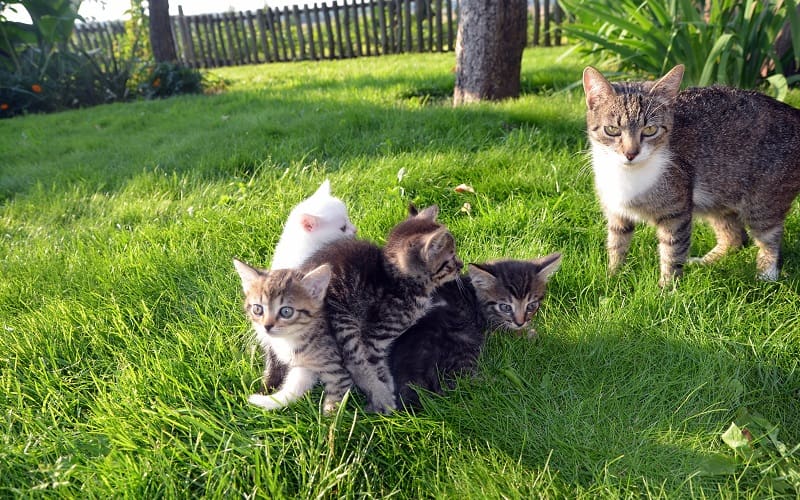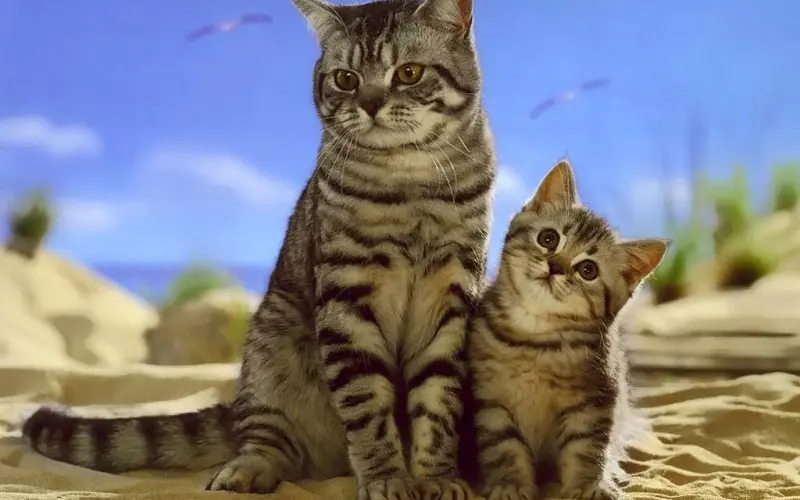Last Updated: 1 year ago
When are cats considered adults? Cats are considered adults at a surprisingly young age.
At just 6 months old, cats reach sexual maturity, and by 12 months, they are generally considered to be adults.
But size, weight, and health status can all affect whether a cat is considered an adult.
Understanding the life stages of cats—kitten, adolescent, or adult—can help you better understand your pet’s behavior and needs.
Learn more about the feline life stages and when cats are considered adults, so you can adjust their care.
How Long Are Cats Considered Kittens

As cat owners, it is important to be aware of when our cats reach sexual maturity.
- Kittenhood (0–6 months): Playful and energetic, kittens require proper nutrition, vaccinations, and socialization. Training and establishing routines start during this stage.
- Adulthood (7 months–10 years): Cats are more independent but still playful. They may need a balanced diet, regular veterinary check-ups, and environmental enrichment. Behavioral patterns become more defined.
- Senior Years (11–14 years): Older cats may experience health changes, requiring tailored care. Regular vet visits, a comfortable environment, and a suitable diet help manage aging-related issues.
- Geriatric Stage (15+ years): Cats in their twilight years require increased attention to health, nutrition, and comfort. Monitoring for age-related conditions becomes crucial for their well-being.
Cats typically reach sexual maturity around 6 months old, which means they are capable of reproducing and can become pregnant.
At this age, male cats will start to roam in search of a mate, and female cats may begin to call out or yowl as part of their mating behavior.
It is important that we take steps to ensure our cats do not reproduce at a very young age. This includes spaying or neutering your cat before they reach the age of six months old.
If you have an intact male cat, he should be kept indoors at all times so he cannot escape and find a mate outside the home.
For female cats who are not spayed yet, it is best to keep them inside until they have been spayed by a veterinarian, as they could get pregnant if allowed outdoors while in heat, which usually lasts 4–7 days.
It is also important that we monitor our kittens closely during this time period because they may start displaying signs of being sexually mature.
They include increased aggression towards other animals or people, excessive meowing, marking territory with urine, mounting objects or other animals, and hiding from humans more often than usual.
If any of these behaviors occur, then it’s likely your kitten has reached sexual maturity, and you should contact your vet about getting them spayed soon.
What to Expect When Cats Reach Adulthood

As cats grow, they go through different life stages, just like humans do.
Knowing when are cats considered adults can help you understand their behavior better and provide the best care for them.
Most cats reach sexual maturity around 6 months old and are generally considered adults by 1 year old.
This is a general guideline as size, weight, and health status can affect when a cat is considered an adult.
For example, smaller breeds of cats may be considered adults earlier than larger breeds since they tend to mature faster.
Similarly, if your cat has any underlying health issues or nutritional deficiencies, this could delay its physical maturation process.
Once your cat reaches adulthood, there will likely be changes in its behavior, which you should take into account while caring for it.
Adult cats may become more independent compared to kittens, who usually need more attention due to their playful nature and curiosity about the world around them.
Adult cats also require higher-quality food than kittens, as their dietary needs change with age, so make sure you’re providing your pet with the right nutrition according to its stage of life.
Additionally, adult cats typically require less playtime but still need regular exercise and mental stimulation in order to stay healthy both physically and mentally.
Talk to your vet if you notice any changes in your pet’s behavior as it approaches adulthood, including increased aggression or decreased energy.
How a Cat’s Life Stage Can Affect Its Behavior

While cats are known for their independent nature, it’s important to understand that their behavior can be affected by the life stage they’re in, whether it’s kittenhood, adolescence, or adulthood.
Kittens are full of energy and curiosity. They love to explore and play with anything they can get their paws on!
They often need lots of attention as well as plenty of toys and stimulation to keep them entertained.
It’s also common for kittens to chew on things like furniture or wires so make sure these items are out of reach!
Adolescents tend to become more independent during puberty. They may start testing boundaries by scratching furniture or jumping onto counters which is normal behavior for cats in this age group.
Make sure you provide plenty of opportunities for exercise and mental stimulation, such as puzzle feeders or interactive toys.
Adult cats usually settle into a calmer routine than younger cats do. However, they still require regular physical activity and mental stimulation in order to stay healthy and happy.
Providing a variety of toys will help your adult cat stay active, while providing enrichment activities such as food puzzles will give them something fun (and tasty!) to do when bored.
Final Word
Cats reach sexual maturity around 6 months old and are usually considered adults by 1 year old.
However, size, weight, and health status can all affect when a cat is considered an adult. It’s important to remember that a cat’s life stage can have an effect on its behavior.
Therefore, it is essential for cat owners to know when cats are considered adults in order to provide them with the best care possible.
